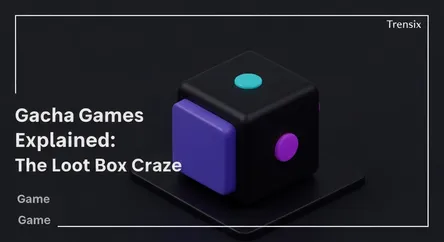Game
Gacha Games Explained: The Loot Box Craze

Discover gacha, the popular but controversial game mechanic where players spend currency for random virtual items. Learn why it's trending.
What is it?
Gacha is a monetization mechanic in video games, primarily free-to-play mobile titles. The term originates from Japanese toy vending machines, "gachapon." In games, players use in-game currency, which can often be purchased with real money, to "pull" or "roll" for a chance to receive randomized virtual items. These items can range from new characters and cosmetic skins to powerful weapons and gear. The core loop involves repeating this process to collect rare or desirable items, with drop rates for the best items typically being very low.
Why is it trending?
The gacha model is incredibly profitable for developers, making it a dominant force in the mobile gaming market. It leverages powerful psychological principles, such as the thrill of chance and the collector's impulse. Limited-time events and exclusive characters create a sense of urgency and fear of missing out (FOMO), encouraging players to spend. The free-to-play entry point attracts a massive user base, a fraction of which, known as "whales," will spend significant amounts of money trying to obtain rare content, driving revenue.
How does it affect people?
Gacha's impact is complex and often controversial. For many, it adds an element of excitement and long-term engagement to their favorite games. However, its similarity to gambling raises serious concerns. The randomization can lead to addictive behavior and significant financial spending, sometimes resulting in debt. This has sparked global debates and regulatory scrutiny, with some countries implementing laws requiring developers to disclose item drop rates or classifying certain gacha mechanics as a form of gambling, particularly to protect younger audiences.